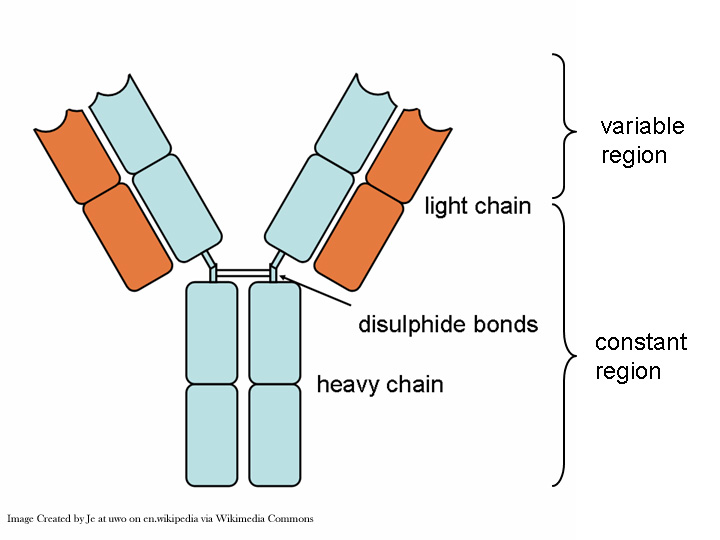Pre-clinical assessment of a novel investigational product should include an evaluation of the compounds’ pharmacokinetic/pharmacodynamic (PK/PD) profile and a series of toxicology studies that, when combined, are used to guide dosing decisions. As part of the PK/PD and safety studies, researchers can identify a Minimal Anticipated Biological Effect Level (MABEL) for the initial clinical trial and pharmacodynamic biomarkers to inform go/no-go decisions for additional clinical research. In this webinar, a case study using the immunotherapeutic small molecule VTX-2337, will help to show how this preclinical evaluation can be done effectively. A Q&A with the audience will follow the main presentation.
Immunotherapy has proven to be a successful therapeutic approach for some cancers types, as demonstrated by the recent regulatory approvals of sipuleucel-T (Provenge) and impilimumab (Yervoy). One promising paradigm in immunotherapy is targeting pathogen associated molecule pattern receptors (PAMPS), such as the toll-like receptors (TLRs), to activate the innate immune system and enhance the development of tumor directed adaptive immune responses.
VTX-2337 is a potent and selective small molecule (<500 MW) TLR8 agonist that activates myeloid dendritic cells, monocytes and NK cells to produce both chemokines and Th1 polarizing cytokines, including TNFα, IL-12 and IFNγ.
Prior to the conduct of clinical studies, the Myriad/RBM TruCulture system was used to compare the potency of VTX-2337 on both human and non-human primate leukocyte populations. The Myriad/RBM system also allowed the repertoire of mediators as well as the magnitude of cytokine/chemokine responses to be compared across the two species. Subsequent in vivo studies conducted in cynomologus monkeys utilized the Myriad/RBM MAP inflammation panel to define the PK/PD relationship between VTX-2337 dose and levels of circulating mediators identified in vitro.
Overall, this preclinical characterization of VTX‑2337 defined the dose response in relevant species, identified potential clinical biomarkers of VTX-2337 activity and defined a MABEL for humans. These results allowed an appropriate initial clinical dose to be set in the initial Phase 1 trial, which assessed escalating doses of VTX-2337 in patients with advanced, solid tumors. Plasma levels of multiple biomarkers associated with TLR8 activation including: G-CSF, MCP-1, MIP1‑β and TNFα, increased in a dose-dependent manner and correlated with increasing plasma levels of VTX-2337 in these patients. This PK/PD relationship defined in the initial clinical trial was closely aligned with results from both in vitro and preclinical studies conducted in cynomologus monkeys.
Speaker

Gregory N. Dietsch, Ph.D., DABT, Vice President of Research, VentiRx Pharmaceuticals
Dr. Gregory N Dietsch, Ph.D., DABT, currently serves as Vice President of Research at VentiRx Pharmaceuticals. Prior to joining VentiRx, Dr. Dietsch was Vice President of Preclinical Sciences at ICOS Corporation, where he built and directed the pharmacology, drug metabolism, pathology and toxicology groups that supported ICOS Research and Clinical development programs.
Dr. Dietsch has over 17 years industry experience in the preclinical research, safety assessment, and the clinical development of novel therapeutic agents. He has worked on programs that span a wide array of therapeutic areas that include: multiple sclerosis, psoriasis, pulmonary arterial hypertension, chronic obstructive pulmonary disease, acute respiratory distress syndrome, oncology, stroke, pancreatitis, sepsis, interstitial cystitis, erectile dysfunction and pain. Dr. Dietsch worked to advance more than a dozen products from research discovery programs into clinical development; these included monoclonal antibodies, recombinant proteins, natural products and traditional small molecule drugs. While at ICOS, Dr. Dietsch was responsible for the conduct of preclinical studies and preparation of the nonclinical sections for more than 20 different Investigational New Drug (IND) applications submitted to the Food and Drug Administration (FDA). Two of these INDs led to approved products that are currently marketed as Cialis® and Thelin®.
A native of Washington State, Dr. Dietsch completed his undergraduate and masters degrees at Washington State University in Microbiology. He is trained as a cellular immunologist and received his PhD in Microbiology/Immunology from the Oregon Health Sciences University in Portland Oregon. He is also trained as a toxicologist and is a Diplomat of the American Board of Toxicology (DABT).
Who Should Attend?
Researchers interested in the application of biomarkers in:
- Oncology
- Immunology
- Pharmacology
- Translational Medicine
- PD/PK
Xtalks Partner
Myriad RBM
Myriad RBM, Inc. is the world’s leading multiplexed immunoassay testing laboratory, providing comprehensive protein biomarker services based on its Multi-Analyte Profiling (MAP) technology platform. This platform provides pre-clinical and clinical researchers with reproducible and quantitative data for a few or hundreds of proteins in a cost-effective manner. All services are performed in our CLIA certified laboratory. As a guide to drug development researchers, Myriad RBM also offers Strategic Biomarker Services that include companion diagnostics, custom assay development, co-sponsored research programs, and innovative cell culture products. Myriad RBM’s facilities include the biomarker testing laboratory, located in Austin, TX; a multiplex immunoassay development and GMP kit manufacturing facility in Lake Placid, NY, and a cell culture manufacturing and services lab in Reutlingen Germany. Myriad RBM is a wholly owned subsidiary of Myriad Genetics, Inc. (MYGN), a leading molecular diagnostic company based in Salt Lake City, Utah which develops and markets novel predictive medicine, personalized medicine and prognostic medicine tests.
Media Partner
You Must Login To Register for this Free Webinar
Already have an account? LOGIN HERE. If you don’t have an account you need to create a free account.
Create Account



